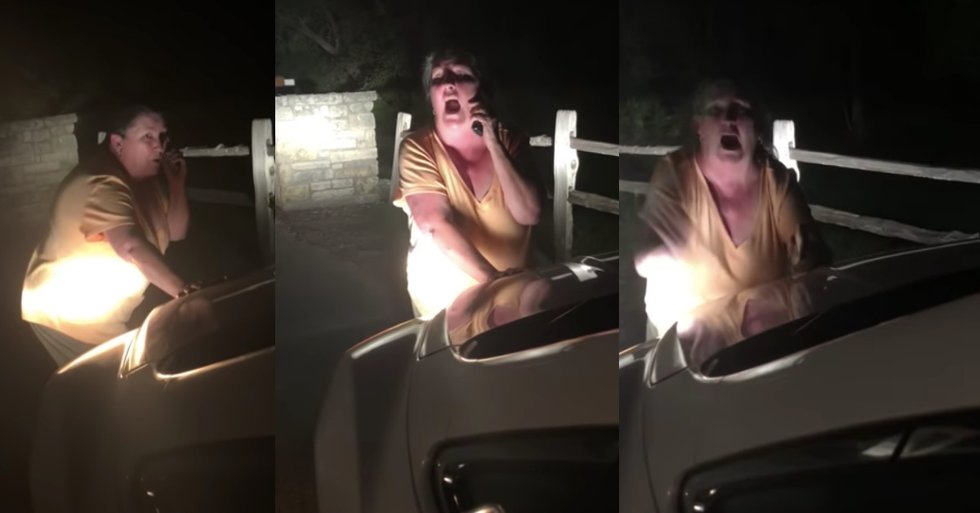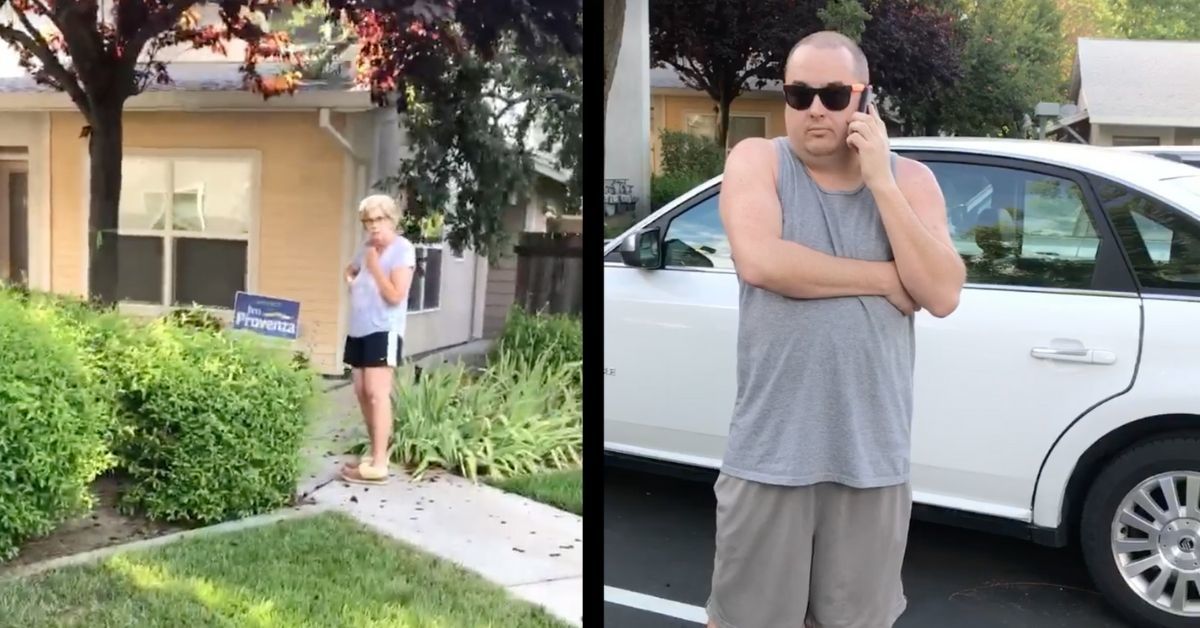Khoa Lam, an Asian American man in Davis, California was visiting his parents when a pair of White people nearby felt they needed to call the police on him.
Lam, a doctor, was Facetiming his wife outside his parents house when he noticed he was being followed by a White woman.
She began interrogating him, asking what he was doing, saying he did not belong there and telling him to leave.
Lam began filming the woman. As soon as she noticed this, she retreated back to her home and threatened to call the police.
Lam wrote online:
"Well, if she really was just a friendly neighborhood watchdog, she should have stopped after she learned that I was visiting family. Still threatened to call the cops on me, then why leave when she realized she was on camera? I was holding a phone, not a gun."
Later that same day, Lam went outside to text a friend.
He was then approached by yet another White neighbor. The man claimed to have been called by a third party who had accused Lam of taking photos of the area's house and cars.
As Lam stood calmly, six feet away, the White neighbor who the internet labelled a "Ken" claimed to feel "threatened" and called the police. Lam captured video of the call.
Shortly thereafter, police arrived on the scene.
Lam returned to Facebook to let his friends know what happened, writing:
"Final update."
"Two police officers came and talked to me at the parking lot. My parents came out for validation purposes and support. I explained to them what happened. This officer, Morgan Hatcher #220, felt compelled to lecture me on 'perspective' and that Ken said he 'didn't know what to do because I had repeatedly asked him to call the cops'."
"WHAT?!! Putting this back on me?? I said, 'Do I look suspicious, like a terrorist or robber?' Hatcher laughed and said, 'Do I know what terrorists look like?' Wow..."
"After my explanations, I said I wanted to invite my accusers out and confront them in the cops' presence. They said no, that's not how they do things. I said I wanted to walk over and talk to Ken peeking out of his door over there."
"She said she would advise against that because I looked quite provoked and if they were asked to intervene...They also said those guys already said they don't want to talk to me."
"Her fellow officer told me that if I were to confront those people later tonight and they ended up calling the cops again, 'it's not going to be...' I said, 'What? Not going to be what? Not going to be pretty?'"
"She then accused me of putting words in her mouth. I asked Officer Hatcher for her fellow officer's name and badge number because she said I could text her if I need anything. No response. From my recollection, it was K. Ramos."
"Those are all the facts. I didn't record them because I was honestly hesitant. I don't know if they had their body cameras on. Update: Officer Hatcher responded and confirmed her fellow officer was Ramos, K9 #120."
"PS. I'd like to say that I would highly recommend against harassment of these individuals (in any form) in the lens of social justice. That would be the exact opposite of my goals in bringing up this incident. I just hope this serves as a learning opportunity for all parties involved, including myself. And as a social message for the rest of us to be more culturally and politically aware and appropriate, so that in the near future, we can all coexist in harmony."
Shortly after the incident, Lam submitted a claim against the officers for "racial profiling, bias-by-proxy, discrimination and harassment" based on the Racial and Identity Profiling Act of 2015.
Lam wrote in his complaint:
"The officers failed to investigate their actions properly and threatened me. They exhibited implicit bias during their field interview of me, and discriminatory policing with their non-enforcement of the law. They should have been trained and made aware of the potential bias-by-proxy during their field interviews."
"The dispatcher should have collected the necessary information to verify potential criminal activity or lack thereof, and realized potentially biased assumptions when taking calls. Reports of suspicious activity should not be actionable unless a complainant can articulate potential criminal activity with reasonable suspicion."
"The Vera Institute of Justice warns that bias by proxy may arise when 'officers rely on the emergency dispatcher's recitation of what a biased caller claims to have happened instead of making an independent and professional assessment of the caller's claims.'"
Davis Police Chief Darren Pytel told NextShark:
"It will take a little time to do a thorough review, which includes interviewing everyone involved, reviewing body-worn camera video, video taken by Mr. Lam, and listening to the phone call that was made to the Police Department."
"We will be in touch with Mr. Lam during our review and will share our findings. The Independent Police Auditor will also likely release findings, which will be available for review."
San Francisco is now considering the Caution Against Racially Exploitative Non-Emergencies or "CAREN" Act, which would make these non-emergency 911 calls illegal and potentially even a hate crime.
Lam told NextShark:
"I hope it gets passed and adopted widely.
 COMICSANDS
COMICSANDS percolately
percolately georgetakei
georgetakei secondnexus
secondnexus george's picks
george's picks












